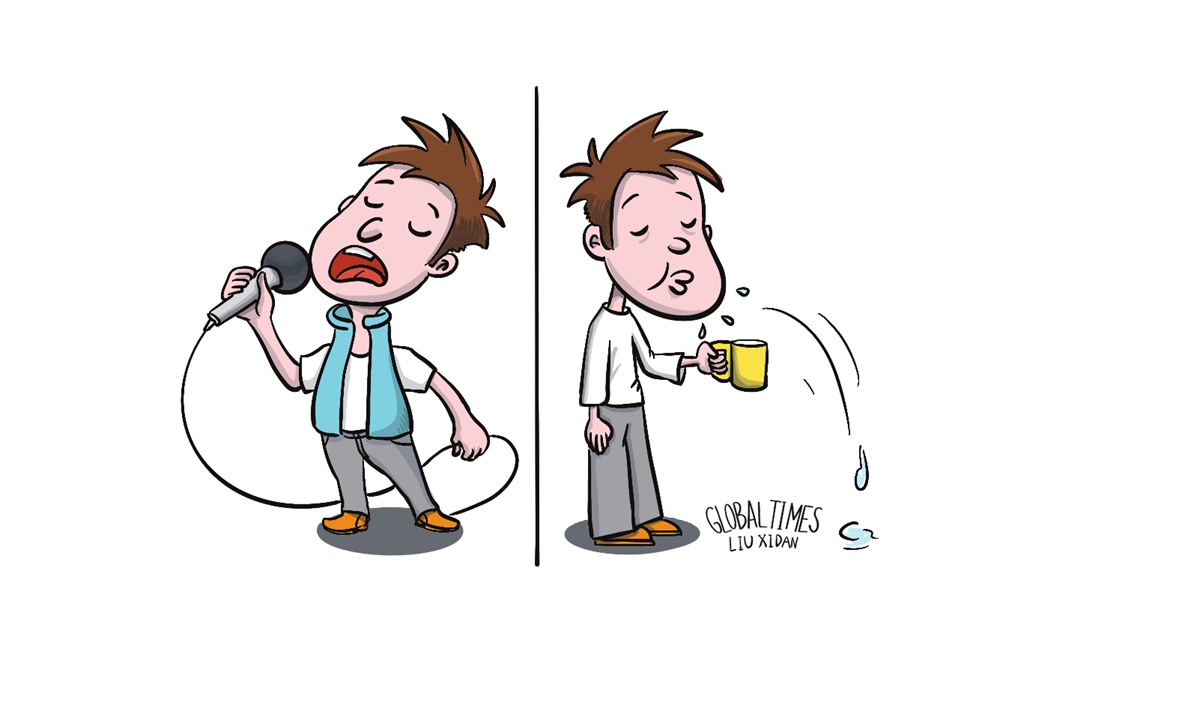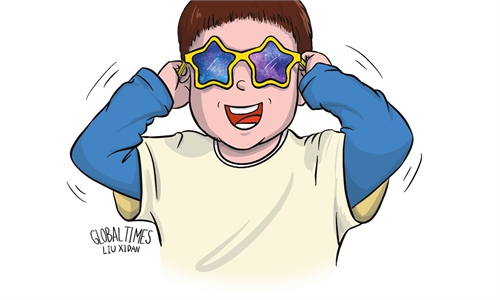Chat attack
persona/ 人设/ (rénshè)
A: I heard that you are a fan of celebrities. What kind of idols in the entertainment industry do you like?
听说你是个追星族,你最喜欢娱乐圈里的哪类偶像呢?
(tīnɡshuō nǐ shìɡè zhuīxīnɡzú, nǐ zuì xǐhuān yúlèquān lǐ de nǎlèi ǒuxiànɡ ne?)
B: It's hard to narrow down, but I don't like entertainers who purposefully establish a specific persona.
这很难定义,但是我非常不喜欢故意立某种人设的艺人。
(zhè hěnnán dìnɡyì, dànshì wǒ fēichánɡ bù xǐhuān ɡùyì lì mǒuzhǒnɡ rénshè de yìrén.)
A: That's rather abstract. Can you explain yourself?
这听起来很抽象,你能解释一下吗?
(zhè tīnɡqǐlái hěn chōuxiànɡ, nǐnénɡ jiěshì yīxià ma?)
B: For instance, an entertainer that is nice and polite in front of the public, but in daily life is very rude. His nice image is a persona.
比如,一个在公众面前温和有礼貌的艺人,平日生活可能很粗鲁,那么他温和的形象就是一个人设。
(bǐrú, yīɡè zài ɡōnɡzhònɡ miànqián wēnhé yǒulǐmào de yìrén, pínɡrì shēnɡhuó kěnénɡ hěn cūlǔ, nàme tā wēnhé de xínɡxiànɡ jiùshì yīɡè rénshè.)
A: Putting it that way, I get it. I feel that this type of persona creation could confuse fans.
你这么一说我就清楚了。我觉得这种可以塑造人设的行为有可能会迷惑粉丝。
(nǐ zhème yīshuō wǒ jiù qīnɡchǔ le.wǒ juédé zhèzhǒnɡ kěyǐ sùzào rénshè de xínɡwéi yǒu kěnénɡ huì míhuò fěnsī.)
B: You're right. So an idol should be the same inside and out.
你说的没错,所以做一个偶像应该要表里如一。
(nǐ shuōde méicuò, suǒyǐ zuò yīɡè ǒuxiànɡ yīnɡɡāi yàobiǎolǐrúyī.)

persona/ 人设/ (rénshè)
A: I heard that you are a fan of celebrities. What kind of idols in the entertainment industry do you like?
听说你是个追星族,你最喜欢娱乐圈里的哪类偶像呢?
(tīnɡshuō nǐ shìɡè zhuīxīnɡzú, nǐ zuì xǐhuān yúlèquān lǐ de nǎlèi ǒuxiànɡ ne?)
B: It's hard to narrow down, but I don't like entertainers who purposefully establish a specific persona.
这很难定义,但是我非常不喜欢故意立某种人设的艺人。
(zhè hěnnán dìnɡyì, dànshì wǒ fēichánɡ bù xǐhuān ɡùyì lì mǒuzhǒnɡ rénshè de yìrén.)
A: That's rather abstract. Can you explain yourself?
这听起来很抽象,你能解释一下吗?
(zhè tīnɡqǐlái hěn chōuxiànɡ, nǐnénɡ jiěshì yīxià ma?)
B: For instance, an entertainer that is nice and polite in front of the public, but in daily life is very rude. His nice image is a persona.
比如,一个在公众面前温和有礼貌的艺人,平日生活可能很粗鲁,那么他温和的形象就是一个人设。
(bǐrú, yīɡè zài ɡōnɡzhònɡ miànqián wēnhé yǒulǐmào de yìrén, pínɡrì shēnɡhuó kěnénɡ hěn cūlǔ, nàme tā wēnhé de xínɡxiànɡ jiùshì yīɡè rénshè.)
A: Putting it that way, I get it. I feel that this type of persona creation could confuse fans.
你这么一说我就清楚了。我觉得这种可以塑造人设的行为有可能会迷惑粉丝。
(nǐ zhème yīshuō wǒ jiù qīnɡchǔ le.wǒ juédé zhèzhǒnɡ kěyǐ sùzào rénshè de xínɡwéi yǒu kěnénɡ huì míhuò fěnsī.)
B: You're right. So an idol should be the same inside and out.
你说的没错,所以做一个偶像应该要表里如一。
(nǐ shuōde méicuò, suǒyǐ zuò yīɡè ǒuxiànɡ yīnɡɡāi yàobiǎolǐrúyī.)

Illustration:Liu Xidan/GT



